When a team of British journalists and academics met in the fall of 2011 with staff from the London office of the Open Society Foundations (OSF) to discuss a hybrid investigative research project, all went well until the project budget was mentioned. Spending somewhere upwards of GBP 80k on a single, short-term project was expensive even for OSF, an organization bankrolled by investor George Soros that is one of the largest philanthropic funders of journalism worldwide.
Yet, the project was approved within a week or so, a record time for a large donor organization like OSF. Joseph Rowntree Foundation, a British charity, chipped in.
The project, which became known as Reading the Riots, aimed at studying the causes and consequences of the riots that erupted in several UK cities in August 2011 after the killing by police of Mark Duggan in Tottenham, London.
The British media had diligently covered the riots. The events had made headlines all over the world. But nobody had really dug deep to understand the real causes of the riots. The Guardian, a newspaper, and the London School of Economics (LSE), a university, were planning to do just that: shed light on the root of the problem through interviews with large numbers of people who actually took part in the disorder.
The results were spectacular. Already in December 2011, a study distilling the key findings from interviews with 270 participants in the riots was released by The Guardian and LSE. An analysis of more than 2.5 million riot-related tweets, conducted separately by academics at Manchester University, beefed up the investigation. The study was cited by authorities. Policymakers began to use it on a regular basis.
Reading the Riots was showing both journalists and academics how much impact they can have if they join forces.
The project though was not the first cooperation of its kind. It was, in fact, inspired by a study into the Detroit riots of 1967 carried out at the time by Detroit Free Press, a newspaper, and Michigan’s Institute for Social Research.
As we, Center for Media, Data and Society (CMDS), began last year to engage in journalism production, the London riots project re-emerged in a conversation we were having with OSF about our future projects. Following these discussions, OSF’s European arm gave us a grant to run Black Waters, an investigative research project that our center launched in April 2019 in partnership with Atlatszo, a Hungarian investigative outlet, and Balkan Investigative Reporting Network (BIRN), a journalism powerhouse covering a slew of countries across Eastern Europe.
Black Waters brought together four journalists, two anthropologists, a sociologist, an audio assistant and a natural scientist to investigate environmental corruption in Hungary and Romania. Two teams were created to look into the causes and social consequences of environmental damage along the Danube in two small settlements: Almasfuzito in Hungary and Sfantu Gheorghe in Romania.
The research uncovered different layers of corruption, which were exposed in a series of articles published by Atlatszo and Balkan Insight, BIRN’s publishing portal. A radio series covering the investigation has been aired by Radio Civic in Romania.
So, was Black Waters worth the time and money?
Powerful journalism: Lessons learned
Black Waters was from the beginning designed as a collaborative project. Journalists and researchers negotiated the crucial points of the investigations together, which allowed the journalists to better integrate the experts’ knowledge into their investigative work.
“We tried to take the anthropological perspective like looking at the structural causes, and what exactly led to that. Maybe there is something in there that people are not talking about,” said Ana-Maria Luca, one of the journalists working on the project.
Wording the questions for interviews together with the researchers helped journalists to find novel directions for the story, but also to gain access to sources. That is extremely important for journalists as very often potential informants are reluctant to talk to them but are more open to anthropologists. Public institutions are also keener to provide data for scientific research than to the media. “Often in Hungary, in 80% of the cases, you can’t just approach people as a journalist. You don’t even get a ‘no’. When the anthropologist wrote to the environmental company, they answered after a few weeks,” Gabi Horn, another journalist in the project, said.
In Almasfuzito, for example, locals remained suspicious and often asked what the purpose of the interviews was. Rebuilding their trust again and again was necessary throughout the project.
“By having somebody in the field, you can create a relationship with the community, and a journalist can use this person to empathize with the community,” said Dumitrita Holdis, one of the researchers in the project, adding that the problem is not solved so easily: “I would rather have things off the record. That’s why a journalist can’t really use my research. My interviews are not sources for them.”
Although the journalists couldn’t quote what the academic researchers have gathered with the assurance of anonymity, the expert analysis could eventually be used in their story. In other words, the researchers became journalists’ sources.
On the other hand, researchers have also benefited from the cooperation with journalists. “When we went back to interview somebody, I saw the type of interviews that Gabi [the journalist] does,” said Ian Cook, another Black Waters researcher who also oversaw the project.
“The interview itself had a real tempo because there was something she wanted to find out. She was very sharp. Usually, in anthropology, we wait for something, keep a note of it and come back to it in twenty minutes, because we do not want to push questions too hard at the beginning.”
Nevertheless, tensions appeared precisely because of these differences in how academics and journalists pace their work or the ethical standards each group abides by. Anthropologists spend months, sometimes years, in the field before publishing their findings. Journalists don’t have that much time: they usually spend a few days, maybe weeks, working on a story, and then they want to publish it immediately. When you bring these two types of people together, tensions are unavoidable. At the same time, there was a major difference in working ethics between researchers and journalists. For example, journalists felt uneasy about anthropological or sociological data as they are reluctant to work with unnameable sources.
Overall, though, Black Waters was a positive experience, proving again that the hybrid investigative research formula works, generating richer content and more diverse formats. But such projects happen only rarely, mostly because donor organizations are skeptical about their isolated impact, which is a justified concern. To enhance impact, the collaboration between university and journalism needs structure, articulation and consistency. That was the premise on which we, at CMDS, built our journalism track.
To strengthen collaboration, which is key to success in such projects, we focused on two things: student involvement and partnerships with local media.
The youth factor
In the past year, while developing various journalism projects, we realized at some point that a key element was conspicuously missing: the students. Tapping into the pool of talent educated at the Central European University (CEU), a total of over 1,300 students coming from more than 100 countries, most of them enrolled in master’s and doctoral programs, has produced wonders.
As part of the CMDS Practicum, a class of research and journalism practice taught at CEU by the center’s director, students are assigned to produce an original story. A total of 18 students published their articles, which were documented in this class and covered a variety of topics ranging from internet shutdowns in India to the use of social media by the Peruvian police to war photojournalism, on CMDS’ various platforms. Many of these stories reached a wide audience, were quoted or republished by major media outlets. An article on how Georgia’s media regulator hurts independent journalism was republished by Forbes Woman Georgia.
We tried to take the anthropological perspective like looking at the structural causes, and what exactly led to that. Maybe there is something in there that people are not talking about.
Ana-Maria Luca, one of the journalists working on the project
Students also got involved in the center’s research projects, some of which require strenuous investigative work. They wrote reports about the shifts in the power relations that affect journalism and the media, which were published as part of Media Influence Matrix, our center’s flagship project. The reports are based on extensive desk research, including collection and tabulation of publicly available data, and interviews with a wide range of people including experts, politicians or media owners. In writing the reports, students collaborated with local researchers, advocates, NGOs and media practitioners. Other students contributed to The Business of Misinformation, our project aimed at mapping the individuals and companies that own misinformation websites and their links to institutions, parties and other individuals.
To expand this experience beyond our university’s walls, we also ran a project aimed at discussing the topic of misinformation with students from other Hungarian universities. Worldwide experts were brought to Budapest to have complex discussions with these youths about misinformation and propaganda. As part of the project, participating students produced a series of misinformation-focused reports.
Working with students is an illuminating experience, beneficial for all parties involved. On the one hand, they learn how journalism works, widen their networks and gain fresh exposure, which helped some of them to land good jobs after graduation. Many students told us that even if they don’t pursue a career in journalism, the “newsroom” experience they had in the CMDS Practicum class would be of much use as they are very likely to interact with journalists in their future career. In the official university evaluations, they most often praised the “hyper-practical” character of the course.
But it’s not only students who benefit from such collaborative projects. They are a boon for us and our partners, too, bringing great story ideas to the table. Moreover, and this is what we found most valuable in our experience with students, they bring us to an audience that any media outlet in the world craves to reach: the youth, in dozens of countries, with their dreams, ideas and furies.
Reaching young people can be “a real challenge” when “you’re competing with Baby Shark on YouTube and a million videos about flossing (the dance — not dental hygiene),” Leah Boleto, a presenter of Newsround on CBBC, BBC’s children’s channel, wrote last year.
A 2019 report published by the Reuters Institute for the Study of Journalism, an Oxford-based research outfit, found that public service media, even in countries where they are highly trusted, have a hard time engaging with younger audiences. The reach for people under 25 has been in constant decline for the last three years, as social media have become the most preferred source of news for them.
What can then be better than getting the youth to tell the stories to the youth?
In partners we trust
Our center has numerous journalists among its staff and affiliated fellows. They all do outstanding work. Thus, we could choose to do all journalism-related work on our own. But to achieve larger impact and outreach, we decided to build the center’s journalism track on a foundation of partnerships with local media outlets. Practically, all our journalistic projects have a media partner.
In hindsight, this was a salutary decision. Not only that such partnerships generate fresh story ideas for local media outlets, but also expose our center’s research work to a much larger audience than our small community of English-speaking researchers and journalists.
Probably the best illustration of this mutually beneficial relation is the center’s Business of Misinformation project. In the framework of this project, CMDS co-operated with three media organizations: HVG in Hungary, PressOne in Romania, and DennikN in Slovakia. Following a round of research into the ownership structures and sources of funding behind prominent fake news websites in Eastern Europe, which was conducted by our center’s researchers, we then commissioned journalists working for these outlets to follow up on some of the most striking findings of the research.
Using our research, the three outlets published a total of six articles, combined. They were read on average by one-hundredfold more people than the country reports published by the center. For example, the article in HVG, one of the most trusted Hungarian news sites, had more than 28,000 unique visitors. The story published by PressOne attracted over 32,000 readers. The four stories published by DennikN together had nearly 80,000 pageviews. Never before has the center’s written work been read by so many people.
Can journalism and academia save each other?
In many countries all over the world, news media are captured by oligarchies. As tech giants control growing parts of the ad market and governments step up their spending in state media, independent news media are under harsh financial pressures. Moreover, trust in journalism is at record lows. The Digital News Report 2019 of the Reuters Institute found that trust in news in general is down to 42%.
On the other hand, academia is also coming under pressure. The experience of our own university speaks for itself. Viktor Orban’s right-wing populist government, which has been in power for a decade, used dubious legal tools to kick CEU out of Hungary. As of this year, our university will operate in Vienna. Moreover, the academic work is hardly relevant in society mostly a result of the poor outreach and communication work done by academics. A 2015 study from Pew found that 87% of scientists accepted that natural selection plays a role in evolution, but only 32% of the public agreed. The disconnect is staggering.
To some extent, it looks like academia and journalism are sharing similar challenges. Joining forces and resources could help both university and media address some of them, if not all.
For example, the two key priorities for journalism, and even more so in the post-Covid world, will be achieving financial sustainability and regaining trust. Some successes have been observed. In Slovakia, DennikN, a news outlet established in 2015, broke even in only two years after launch thanks to a paywall. In Romania, DOR, a magazine focusing on storytelling and long-form reporting, supports itself through subscriptions and sales of merchandise, ads and grants. In Kazakhstan, Vlast, an online platform, has managed to introduce subscriptions in a nation totally unaccustomed to pay for news content.
However, that is far from enough. It is comforting for journalists to see more and more examples of successful enterprises in the media, but journalism is yet to build a solid base to operate on.
In academia, improved outreach and closer connection with society are badly needed. Scientists and researchers are increasingly quoted in the media and more present on social networks. But university tends to be inward-looking, rarely trying to target broader audiences.
As our modest journalism experiments are showing, joint work between academia and journalism is incredibly powerful, helping academics reach audiences they would never dream of reaching and journalists improve and increase their output, all with a more efficient use of resources. Undoubtedly, there are snags. Deadline means a totally different thing for academics and journalists. Their work ethics differ. They write differently. They think differently about their audience.
But properly managed and done at scale, with universities and media institutionally opening to each other and sharing their intellectual and financial resources to produce knowledge for the public good, investigative research collaboration is very likely to provide an answer, maybe the only one, to the many challenges that both journalism and academia are facing.
This report used information and quotes from “How Can Investigative Journalists and Researchers Work Together? An Account of an Experimental Hybrid Project,” a report written by Alexandra Czeglédi that documented the work experience in the Black Waters project.
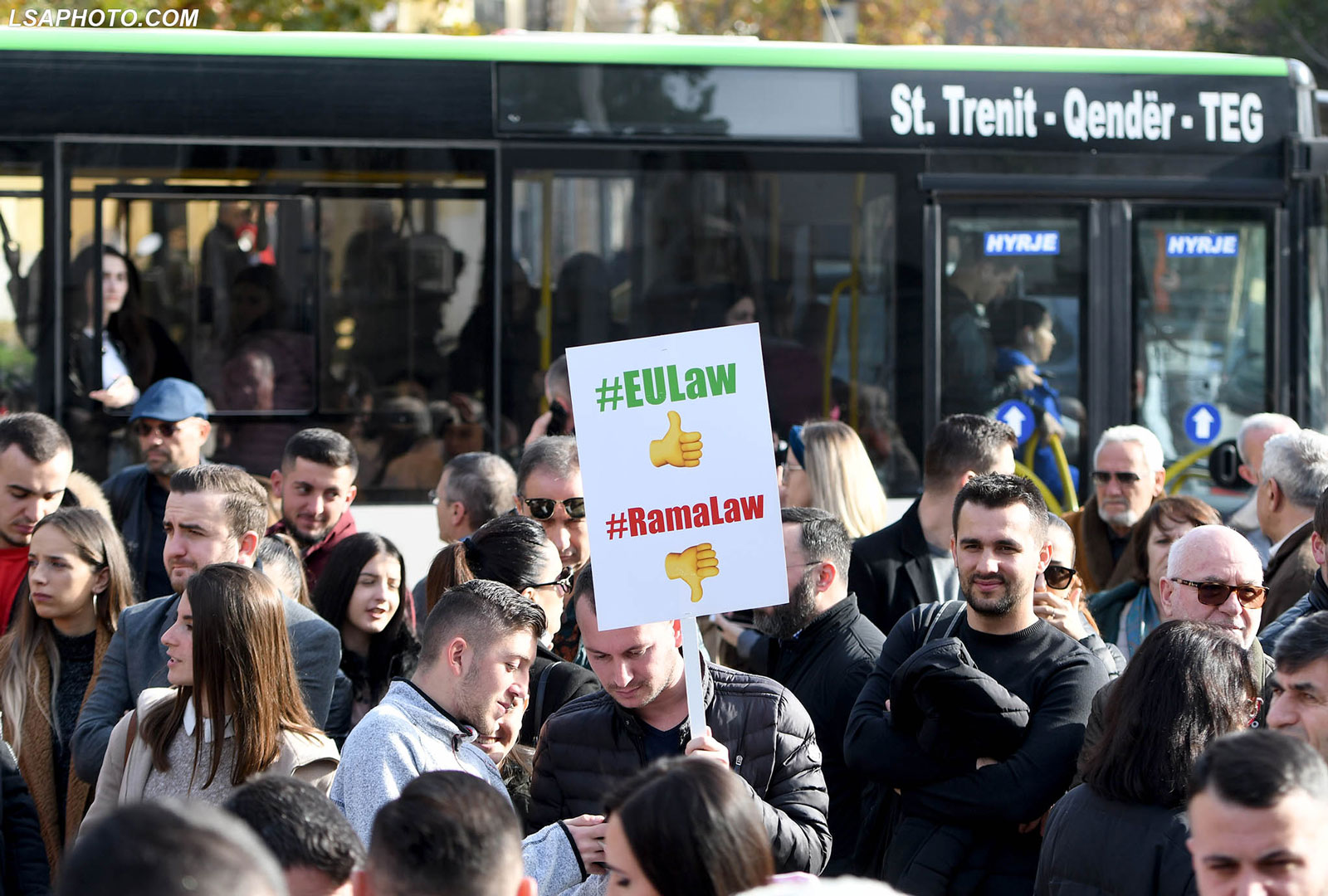
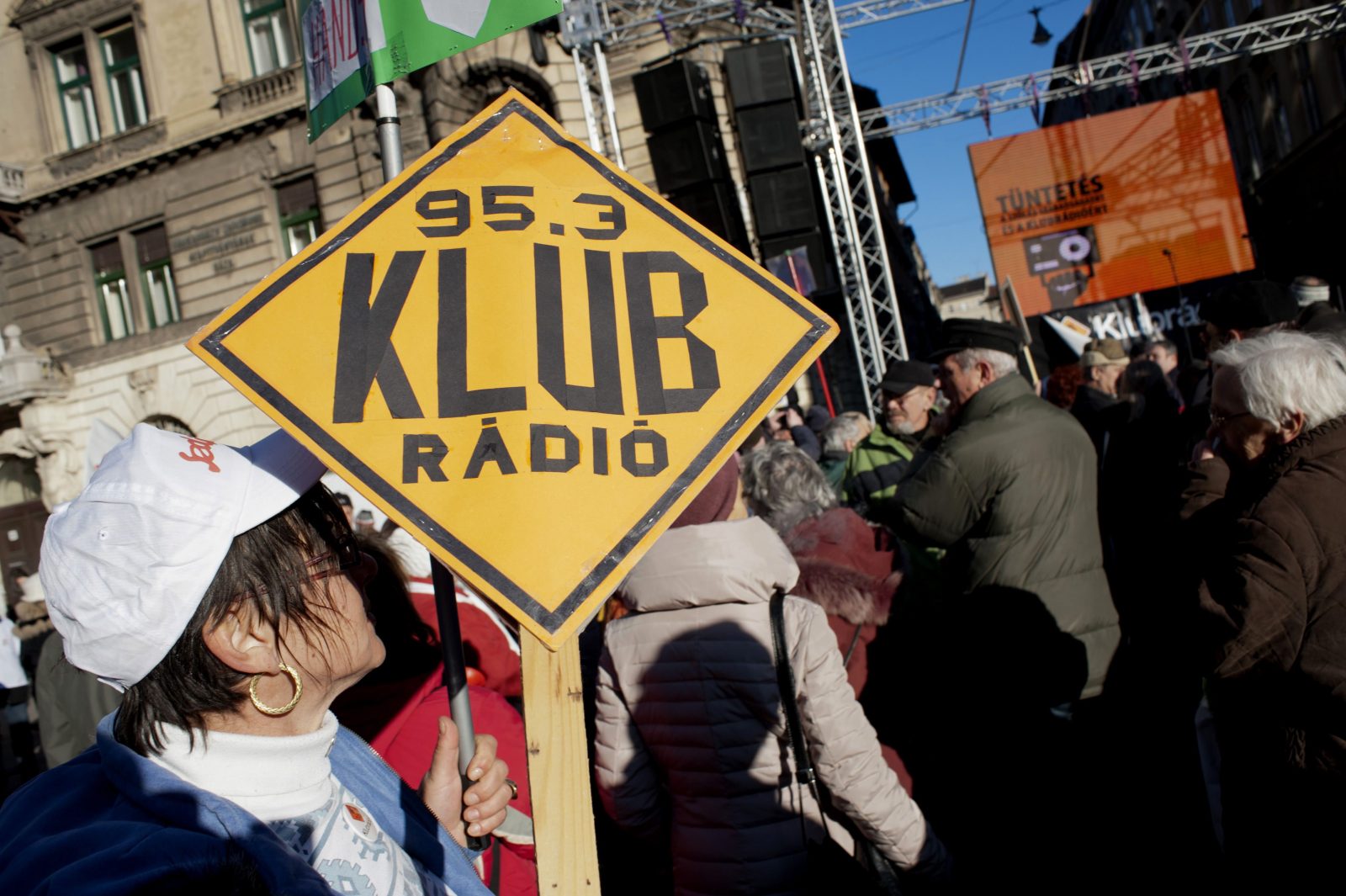




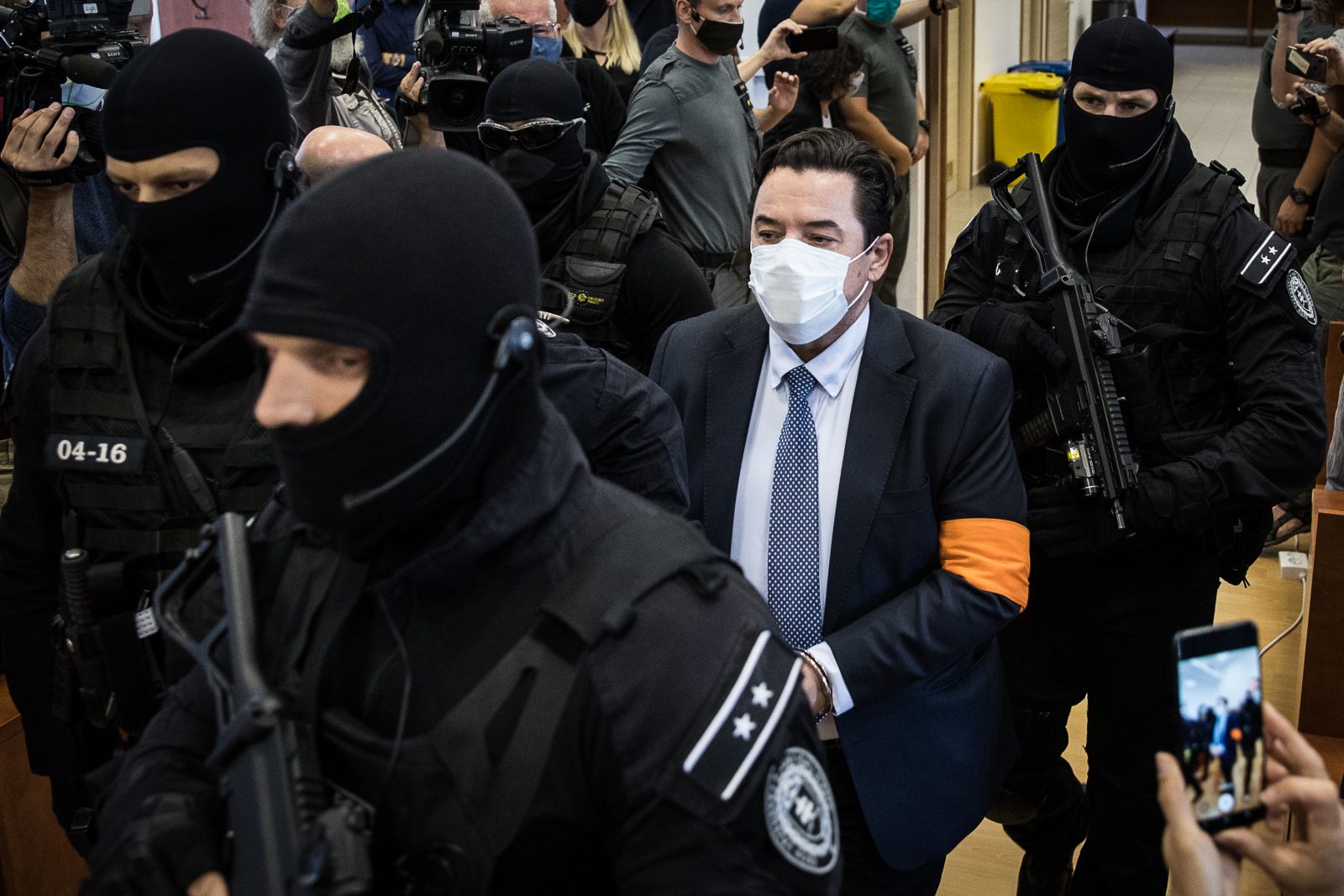

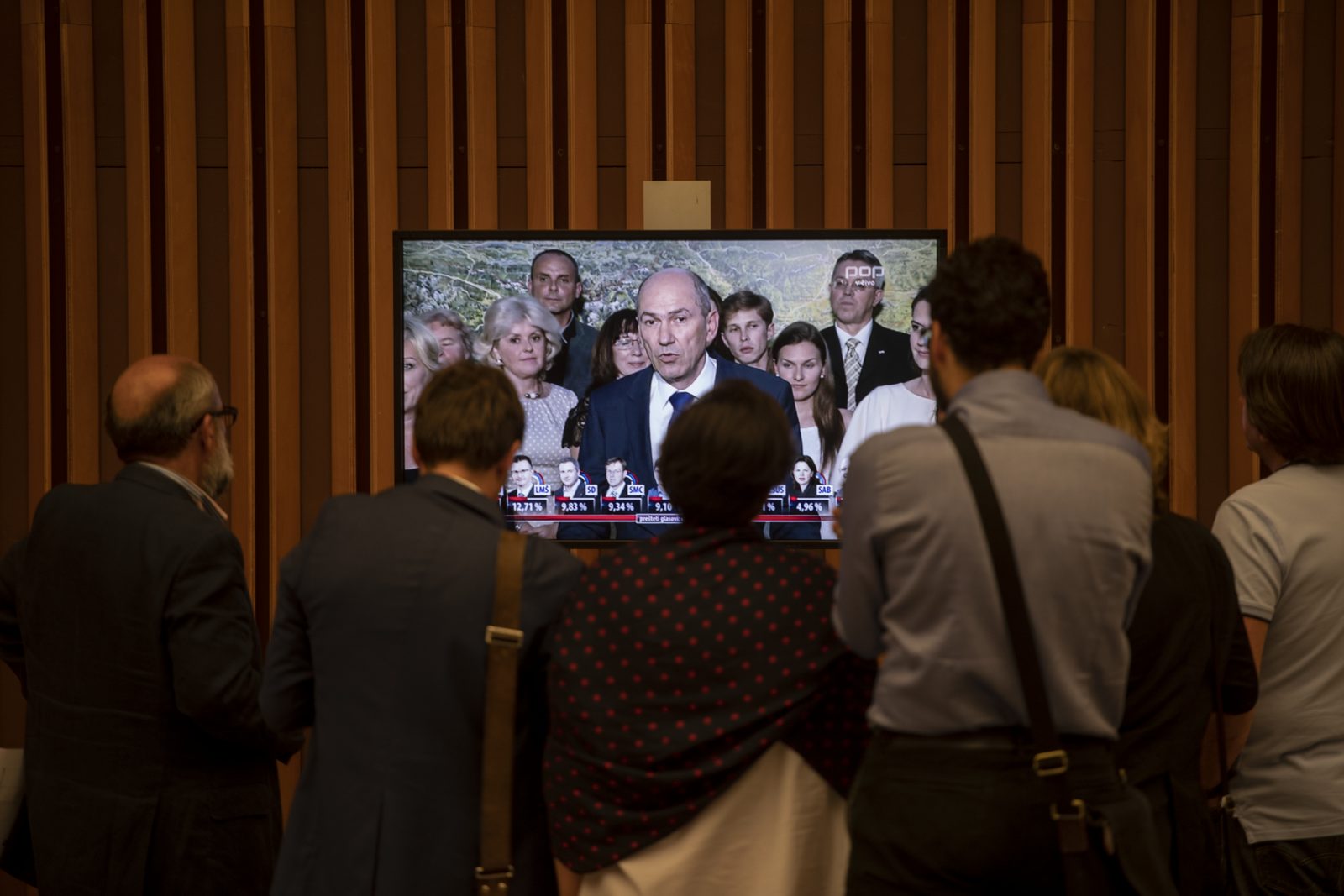
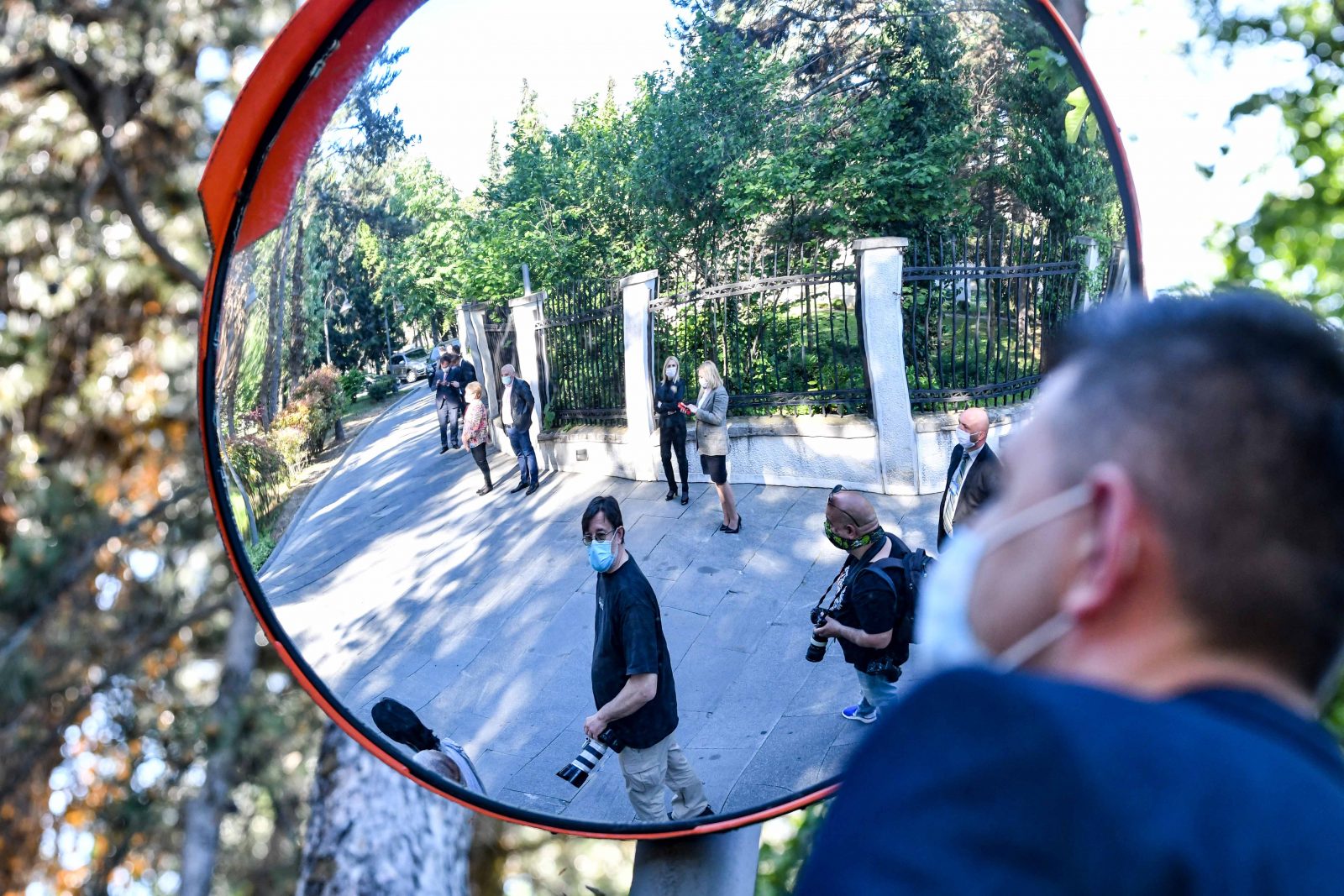





 Different pages amplified the same content at the same time from the same media outlets. Red boxes highlight posts from official Facebook pages of Vistina and Republika showing simultaneous posting by official and amplifier pages. Photo: Courtesy of DFRLab
Different pages amplified the same content at the same time from the same media outlets. Red boxes highlight posts from official Facebook pages of Vistina and Republika showing simultaneous posting by official and amplifier pages. Photo: Courtesy of DFRLab